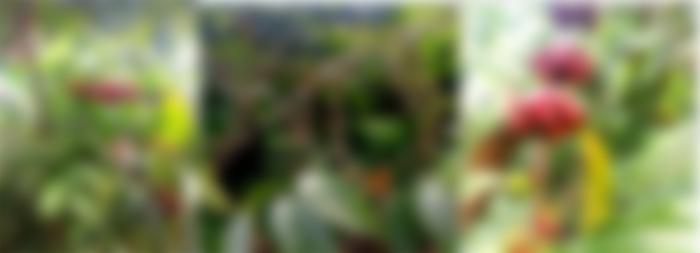Harvesting coffee, the back end process.
Coffee is LIFE! Yes it is, who doesn't LOVE coffee here? I bet most of us do, in fact I belong to those who could not let the day pass without having a cup. Yes, I know I decided to withdraw from drinking coffee and write an article about it here, but then I felt my day was incomplete without it.
I was just reading some articles when I read what @FarmGirl published about " "Barako love affair". Honestly I was thinking another way because of the title but did not expect it was actually about coffee. Here is her article . After a few conversations I decided to write an article about it.
Yeah, many of us love coffee but do you have an idea how it was harvested or how was the process to produce " kapeng barako"?
Well let me share it with you. Though ours was in a traditional way, well we don't have a plantation. Just a few trees. Hahaha.
The back end process.
If we know each other in noise cash, perhaps you have seen some of my posts about coffee. Yeah, our home in the province where I grew up was surrounded by coffee trees. Since I was a kid I was used to harvesting, not because I want to but because I don't have a choice. Hahaha , I was required, my grandma is a typical granny who doesn't tolerate lazy kids. As much as possible she wants us to be engaged in all chores.
Coffee trees do not grow too tall but you can't harvest the fruits by just using your bare hands. We usually use a long twig where the edge was twisted like number seven, this is to pull a coffee twig/branches to bend. I can't explain it well but we call it "panga" in our dialect. My grandma was so strict, she didn't want a any branches to cut off so I was so careful in bending . Failure to do so means you will receive a pinch or a spank.

Aside from that, we also need to be careful not to harvest unripe fruits or what we call " bubot / linghod"". Well it is easy to determine because the color changes to red once it's already ripe. But then there are also some fruits that are okay for harvesting but colors are still green. You know it because it looks plump, I on the other hand used to bite it just to determine if it's still soft then not good for harvesting. Silly of me. Don't blame me, I was still a kid back then.

Once we are done harvesting my grandma will pound the fruits using mortar and pestle to separate the seeds. Oh, not that one found in the kitchen. It was made of wood and big one enough to pound a lot of. I remember she let me do the pounding before because she was so tired. Unfortunately, I can't control my strength plus the pestle was so heavy for my age " talsik ang laman ". I was awarded by a pinch and it hurts!
After pounding, we will need to make it dry by letting it stay under the heat of the sun. Once it is dry, she separates the coffee beans from the dried fruit skin using a winnower basket. It was so tiring and yeah, I know how to do that. Hahaha.
Once done with the process, that is where we gonna go to the town proper to sell our products. You can actually sell it after harvesting but the price will vary. Seller will just buy it at a cheap price unlike if you sold beans.
For our consumption, grandma will cook the beans in a pan, like frying without oil. Once it's cooked, we will bring some to the town proper for grinding. It is now ready to boil to make some " kapeng barako".
Closing thoughts.
Now at least you had an idea but of course the process will be different after harvesting as for sure those who have plantation have machines. That's the benefits of inventions. Life becomes easier and faster.
Before I bid goodbye, let me first flex all my generous sponsors and of course the newest one and my new found friend here and I could consider as a brother @Olasquare. Feel free to visit their profiles as their articles are worth of your time.
That's all for today and have a great day fellas!
Find me at noise cash, here.


This is a really difficult stage when you harvest. Because you were a child. I remember once in the scorching heat I harvested wheat and my hands were injured. I used to think that coffee is easy to drink but it is very difficult to cultivate and harvest.